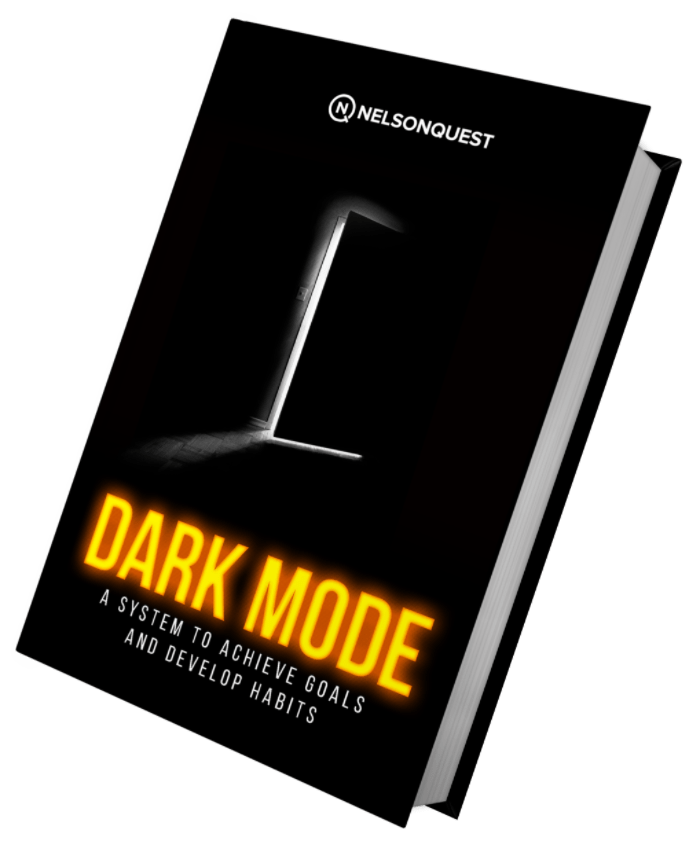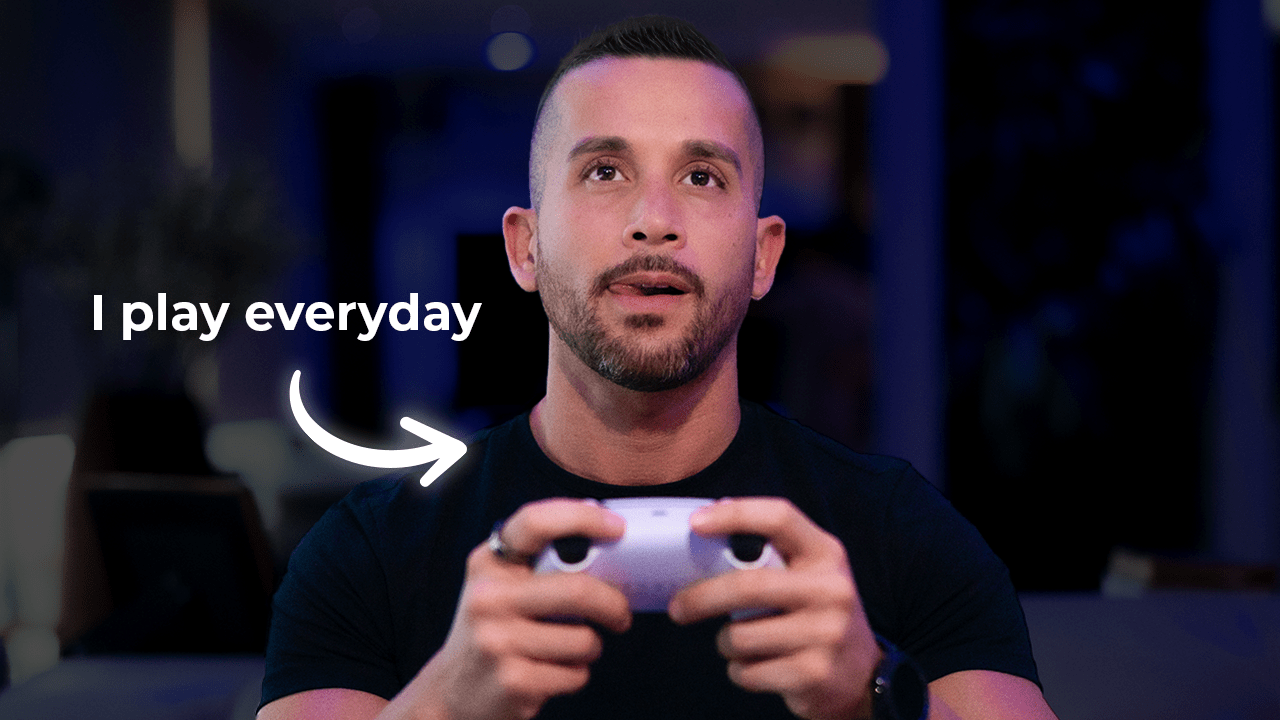4 Instant Mental Shifts That (Massively) Improve Life
- Written by NelsonQuest
- November 2, 2022
Table of Contents
Personal development is easy. We all know, more or less, the things that we need to do if we want to truly manifest our potential.
Work diligently. Eat healthy and exercise. Apply what we consume to transform raw information into knowledge.
The problem though for many of us is that when we begin construction on this improved version of ourselves, in our rush to start building the visible portions of the house first – good habits, solid work ethic, meaningful goals – we neglect to inspect the foundations upon which we’re building – which as it turns out for almost all of us, are extremely faulty – and so the house collapses… over and over and over again.

So in this article, I’m going to show you 4 mental shifts you can make right now to fix faulty foundations before you start your next personal development endeavor.
And you’ll see that it won’t just be easy, it will feel effortless… as it should be.
This stuff has taken me the better part of 10 years to fully figure out and I’m about to spoon-feed it to you guys in a 10 minute video, so f*cking pay attention and seriously commit to implementing these shifts immediately after you’re done watching for at least 24 hours and that will give you all you need to want to commit permanently.
Let’s begin.

Shift #1: Think Less
Thoughts are a curious thing, especially here in the West where we’ve been programmed to perceive thoughts as somehow being a critical component of solving every type of problem.
The reality is almost the exact opposite, and it’s actually really silly if you ‘think’ about it.
Look at the entire self-help industry as an example – where the overwhelming majority of players suffer from the same simple problem – a complete inability to take action.
And so how do they try to solve this problem? By thinking themselves into action… which is not only absurd, it is quite literally a paradox.


It is IMPOSSIBLE to think ourselves into taking action. Action, by its very nature, requires us to stop contemplating it in order to take it.
A really good example of this is procrastination – where in an effort to stop procrastinating, virtually everyone tries to ‘think’ or ‘motivate’ themselves out of it, many going as far as to watch videos and read books on the subject.
They’re trying to solve the problem of procrastination with more procrastination. It’s insane.
In the words of, “a person who thinks all the time has nothing to think about except thoughts, so he loses touch with reality and lives in a world of illusions.”
Think less. Do more.
Shift #2: Feedback Loops
For the past few days I’ve been pondering this quote from Nietzsche:
“We labour at our daily work more ardently and thoughtlessly than is necessary to sustain our life because it is even more necessary not to have leisure to stop and think. Haste is universal because everyone is in flight from himself”
If we look closely at our failures, I think that most of us will find that our natural condition is to actually never look very closely at them at all.
Instead, we simply vow to ‘try harder’ the next time, because it’s actually a bit painful to look failure squarely in the eyes because doing so requires confronting the reality of who we really are.

To solve this, I think it’s critical to make a conscious effort to create what are called ‘Feedback Loops’ – a concept that I actually learned from Elon Musk, who explains them as “where you’re constantly thinking about what you’ve done and how you could be doing it better.”
I think the best way to do this is to have a set point during the day – ideally first thing in the morning – where we review the previous day and consider our actions critically and directly.
Where and why did we fail? Where and why did we succeed? What adjustments should I make today to improve on yesterday?

Get the Dark Mode guide

The Dark Mode Guide
is a simple system designed to help you achieve a specific goal by facilitating the development of relevant habits and creating the perfect environment to make failure impossible.
This guide is about actually walking the path. It creates a perfect environment devoid of excuses and forces you to face who you are and what you need to do in a way that’s sustainable.
Shift #3: Willpower Is a Last Resort
My guilty pleasure food is ‘oatmeal bread’, lightly toasted, with a single swipe of peanut butter on top… mmm delicioso.
Even though I have very high levels of willpower – recently I had a problem where every time I bought more bread with the self-promise that I’d eat only two slices per day, MOST days I ate a lot more. There was even one day where I ate the entire bag. Yeah that was most definitely a low point in my life.
Anway, after a few weeks of this, it finally occurred to me that I should more closely inspect the foundations upon which this apparent weakness was manifesting itself, and what I discovered was surprisingly profound.
The hungrier I became, the more I thought about the bread.

Thinking about something that you don’t want to be thinking about even a single time is distracting enough, but I was probably thinking about that bread at least 50 times per day…
But my problem was actually much worse than that, because when I looked even closer, I found that within every single one of those 50 distracting thoughts, a battle was actually taking place where my primitive brain was on the offense, looking for any rationalization it could find to justify eating more bread.
“Eating some of the bread will help me focus”…“I’ll just skip dinner later.”.. “I’ll just workout another 30 minutes to burn it off”…
Out of those 50 battles, my willpower only had to lose ONE for me to end up eating more bread.
In realizing all of this, I determined that the only feasible solution was to go to the source and remove the possibility that I could eat more bread than intended.


Hoping I could find a solution that didn’t involve giving up the bread completely, a few creative Google searches led me to the K-Safe – a time-locking container that allowed me to take out the amount of bread that I wanted to eat on any given day, and then lock the rest in the container for 24 hours.
From that moment on, not only was I no longer overeating bread, but once the locks of the container slid into place I was no longer even thinking about the bread. I went from 50 battles per day, to none.
Now the point I’m trying to illustrate here with my enthralling bread battle is that if we want to eliminate negative habits or addictions, we shouldn’t expect our willpower to have to win 50+ battles of the course of the day – we should instead find the source of that thing and use our willpower one single time to restrict or eliminate it there.
If we’re addicted to social media, we shouldn’t just tell ourselves we’re not going to use it – we should uninstall the applications from our phone or even delete our accounts.
If we’re addicted to video games, we should literally remove the ability to use the console by giving the power cord or controllers to someone to hold onto, or stick them in a kSafe if you have one – at the end of this video I’ll share a link you can use to buy one if you’re interested.
Anyway – if we exercise willpower to eliminate the source, we remove possibility, which frees us from having to battle temptation.
I still keep my bread in a kSafe, but most days I forget to even set the lock. Think about that for a minute before we move to the next and final foundation.
Shift #4: Aspire Towards An Addiction To Progress
It’s just as easy to become addicted to fast food, video games, porn and social media. As it is to become addicted to exercise, work, passions and good habits.
And for as much as I believe it’s important to always keep things simple, I do think it’s important to have at least a basic understanding of how the neurotransmitter ‘Dopamine’ is responsible for our motivation… or lack thereof.
I’ll link a few videos on the topic below in the description – including one where I describe how to ‘switch’ our Dopamine so that it actually motivates us away from low value instant-gratification type activities and towards high value, long-term reward type activities.
This is exactly the reason why some people seem to be addicted to success – because they actually are addicted to success.

Most people make the mistake of looking at everything I do in a day and thinking that I have tremendous discipline and willpower, and while I won’t say that I don’t possess those things, what I will say is that they are almost completely irrelevant when you consider how utterly addicted I am to what I do.
If I had to rely on willpower to train as hard as I do with boxing or salsa, I would have never become good at them.
If I had to rely on willpower to be able to work entire days, I’d probably still be a struggling web designer instead of owner of a web design company with close to 50 employees.
So the question now becomes, how can we quickly form positive addictions?
Well, from my experience it has a lot less to do with focusing on any individual activity, and a lot more to do with focusing on the underlying element that makes all activities enjoyable – progress.

When we become addicted to progress, then we only need to feel progress within any activity to be able to perform it consistently and effortlessly.
As a bonus, an addiction to ‘progress’ also simultaneously deters us from any activity that threatens to ‘cost’ us progress – like wasting time on social media or Netflix.
To feel progress, all we need to do is take action towards a defined goal.
What helps me here (and something I believe is really important) is to conceptualize an ‘idealized’ version of ourselves. Think of him or her as the ‘culmination’ of all of our goals.
My ideal self is a genius businessman and wise philosopher – who lives a simple life despite others perceiving it as overwhelmingly complex.
He can dance and fight and swim and bike at the highest levels – and has climbed the tallest mountain on each continent.
By defining my ‘ideal self’ – not only is it easy to feel progress within any of the positive activities that I perform, but that progress now also serves a higher purpose.
To become addicted to progress IS to make effortless what was once difficult.
Follow me on Instagram @nelsonquest – Unless of course you hate learning new things from someone that’s gone through what you’re going through and come out on the other side… looking really handsome.
This is the path-
Stay
Updated!
Subscribe to e-mails
Join 100k+ others and receive weekly tools, tips, and secret resources directly from Nelson.



